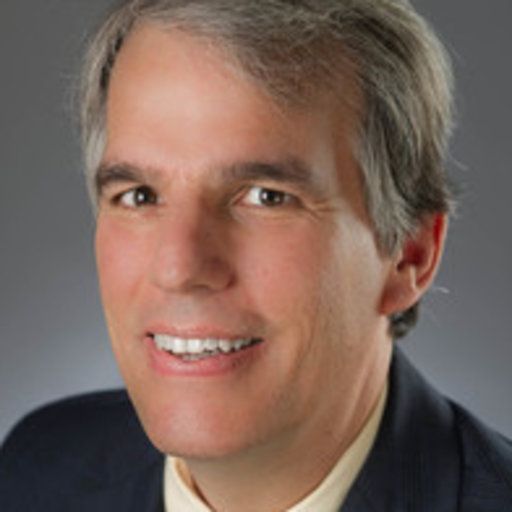News
Article
Health Care Workers At Significantly Increased Suicide Risk
Author(s):
Multiple cohorts of health care professions, including registered nurses and social/behavioral workers, are at greater risk of suicide than the general population, according to new data.
Mark Olfson, MD
Credit: ResearchGate

Registered nurses, health technicians, and health care support workers are at an increased risk for suicide relative to the general population.1
Health care worker’s stressful, emotional workload puts a toll on them—and can lead them to an increased risk of suicidality, according to a new study led by Mark Olfson, MD, of the department of psychology at Columbia University.
Suicide risk in health care workers is not a new discovery. While the risk of suicide for health care workers have been on a decline from previous decades, the study strived to estimate the risks of death by suicide in more recent years.
“Little is known about specific health care work-related occupational exposures that contribute to suicide risk,” Olfson and investigators wrote. “For example, burnout has been associated with suicidal ideation in some, but not all, studies.”
The team of US investigators conducted a new cohort study examining 1.84 million employed adults to compare the risk of suicide between health care workers versus non-health care workers. Participants were selected through the Mortality Disparities in American Communities (MDAC) data set that links 2008 American Community Survey (ACS) participants to National Death Index records. The investigators selected ACS participants aged >26 years old.
Health care workers were stratified by 6 professions: registered nurses; health care support workers which included nursing, psychiatric, home health aides, and other support workers; health technologists and technicians; social/behavioral health workers including social workers, counselors and psychologists; other healthcare diagnosing workers, including dentists, physician assistants; and lastly physicians.
Median study participant age was 44 years old (IQR, 35 – 53). The rate of female workers among each cohort ranged from one-third (32.4%) among physicians to 91.1% among registered nurses.
With non-health care workers serving as reference, 4 of the 6 observed health care worker cohorts were found to be at significantly greater risk of suicide when adjusted for sex- and age-based disparities:
- Registered nurses (adjusted hazard ratio [aHR], 1.32; 95% CI, 1.13 – 1.54)
- Health care support workers (aHR, 1.64; 95% CI, 1.21 – 2.23)
- Health technicians (aHR, 1.81; 95% CI, 1.35 – 2.42)
- Social / behavioral health workers (aHR, 1.39; 95% CI, 1.02 – 1.89)
Physicians were additionally at greater risk for suicide versus non-health care workers, however the difference was not statistically significant (aHR, 1.11; 95% CI, 0.71 – 1.72). “Other” health care-diagnosing or treating phsyicians were actually at a lessened risk of suicide (aHR, 0.61; 95% CI, 0.36 – 1.03).
Female health care workers were found to be at a 50% increased risk of suicide than than their non-health care worker peers (aHR, 1.50; 95% CI, 1.21 – 1.87). Based on this outcome, investigators suggested that future research might “examine potential gender-related explanatory mechanisms such as gender differences in work roles, job satisfaction, and occupation stress.”
Overall, investigators observed 14.1 sex- and age-standardized suicides among health care workers per 100,000 years (95% CI, 12.1 – 16.1), which would indicate a 32% increased risk of suicide among health care workers versus the control general populated (aHR, 1.32; 95% CI, 1.13 – 1.54; P = .006).
Olfson and colleagues explained their research was consistent with previous data that stated health care workers are more likely to have mental health issues and mood disorders, as well as taking long-term work absences due to such mental disorders. Also, despite the previous decline, the risk of suicide for health care workers is rising from the past 2 decades.
“The importance of increased suicide risk of health care support workers is underscored by their growth from 3.8 million (in 2008) to 6.6 million (in 2021), coinciding with aging of the US population,” the team wrote.
One limitation of the study was they could not verify individual survey responses and thus the occupational status was based on a 1-time assessment—so instead of being a health care worker, a participant could have changed jobs or retired at the time of their death.
Another limitation was that the mortality data ended in 2019 and cut off the suicide risks that occurred during COVID-19.
“During the COVID-19 pandemic, the mental health of care workers received considerable national attention,” investigators wrote. “As the pandemic has receded, efforts to improve the mental health of health care workers could lose momentum.”
The team additionally pointed out how the current study underscores the suicide risks for mental health workers.
“To address this challenge, it will be important to identify and ameliorate specific work-related factors that contribute to mental health occupational risks of health care workers, especially registered nurses, health technicians, and health care support workers,” the investigators concluded.
References
Olfson M, Cosgrove CM, Wall MM, Blanco C. Suicide Risks of Health Care Workers in the US. JAMA. 2023;330(12):1161-1166. doi:10.1001/jama.2023.15787




